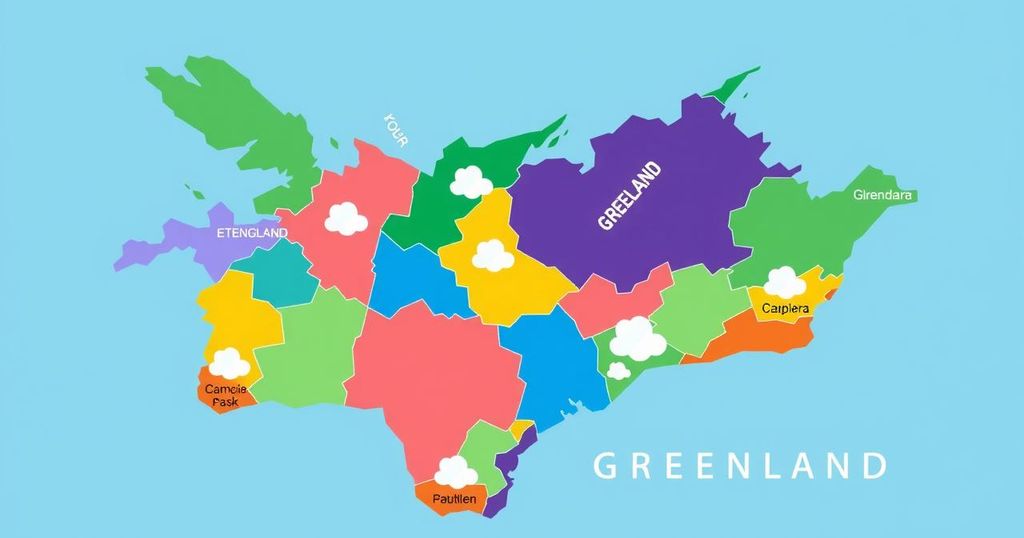Demokraatit emerges as Greenland’s largest political party, securing 29.9% of votes and 10 seats in parliament. Jens Frederik Nielsen becomes Greenland’s most popular politician, advocating for unity amid external interests. The election reflects a desire for change in governance, with a commitment to independence from Denmark among several parties. The formation of the new government is essential for addressing independence aspirations and ensuring effective governance.
The recent election in Greenland has seen the Demokraatit party emerge as the largest political entity, securing 29.9% of the votes, which translates to ten seats in the 31-member parliament. This marks a remarkable increase of over 20% in voter support compared to the 2021 elections. Following the announcement on March 11, Jens Frederik Nielsen, the party leader, expressed optimism about the future, emphasizing the need for unity amid rising external interests, particularly from the United States.
Jens Frederik Nielsen has become the most favored politician in Greenland, amassing 4,850 personal votes or 16.9% of the total. At the age of 33, he has previously served as a member of parliament for Demokraatit and held the role of minister of Labor and Mineral Resources. The former Prime Minister, Múte B. Egede from the IA party, garnered 3,276 personal votes (11.4%), while the election brought notable changes to the political landscape.
The Naleraq party secured second place with 21.4% of the votes, also achieving a significant increase and obtaining eight parliamentary seats. The long-standing parties, Inuit Ataqatigiit and Siumut, experienced substantial declines, receiving 21.4% and 14.7% respectively, with the latter two now occupying the third and fourth spots. Analysts note that these results reflect a desire among voters for change after decades of governance by IA and Siumut.
In the context of independence aspirations, five parties, including Demokraatit, are committed to the long-term goal of Greenland’s independence, while Atassut seeks to maintain a closer relationship with Denmark. Despite variations in their approaches, there is a parliamentary majority seeking gradual independence. In contrast, Naleraq and the newcomer Qulleq advocate for a more immediate and assertive movement towards independence.
The upcoming government formation presents crucial challenges, as the Demokraatit party must decide between forming a coalition with a broad base or persisting as a singular entity. Their strategy during the negotiations will determine their capacity to secure majority support and effectively govern the parliament moving forward, emphasizing the importance of cooperation and a comprehensive political platform.
In summary, the recent election has positioned Demokraatit as Greenland’s most prominent political party, indicating a significant shift towards independence in governance. Jens Frederik Nielsen’s leadership and the increasing popularity of new political perspectives reflect a desire for change among voters. As the parliament now grapples with the issues of independence and governance formation, the need for cooperation among parties will be crucial for future political stability in Greenland.
Original Source: www.highnorthnews.com






